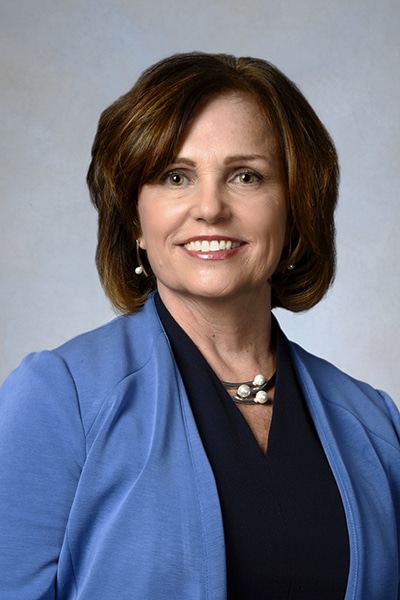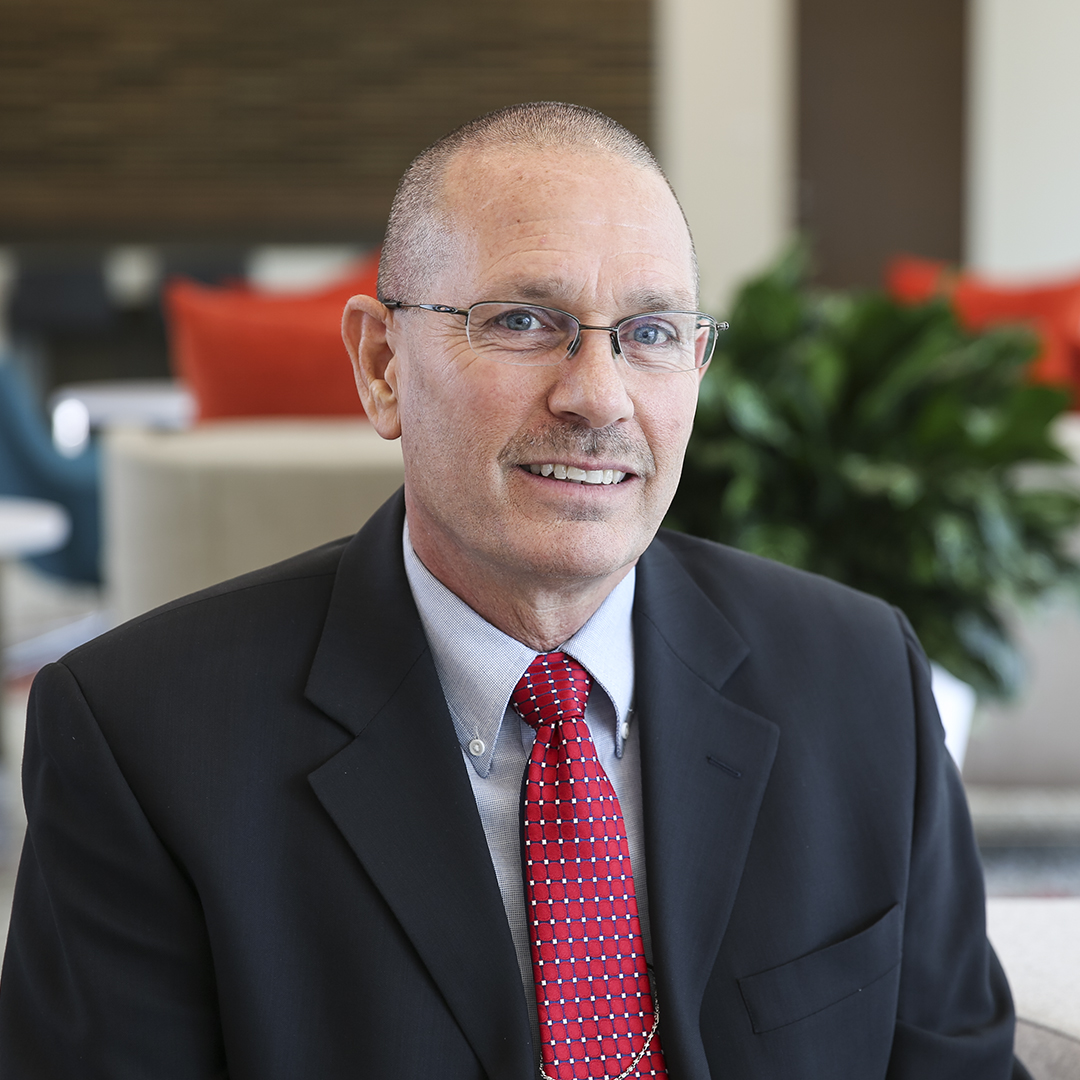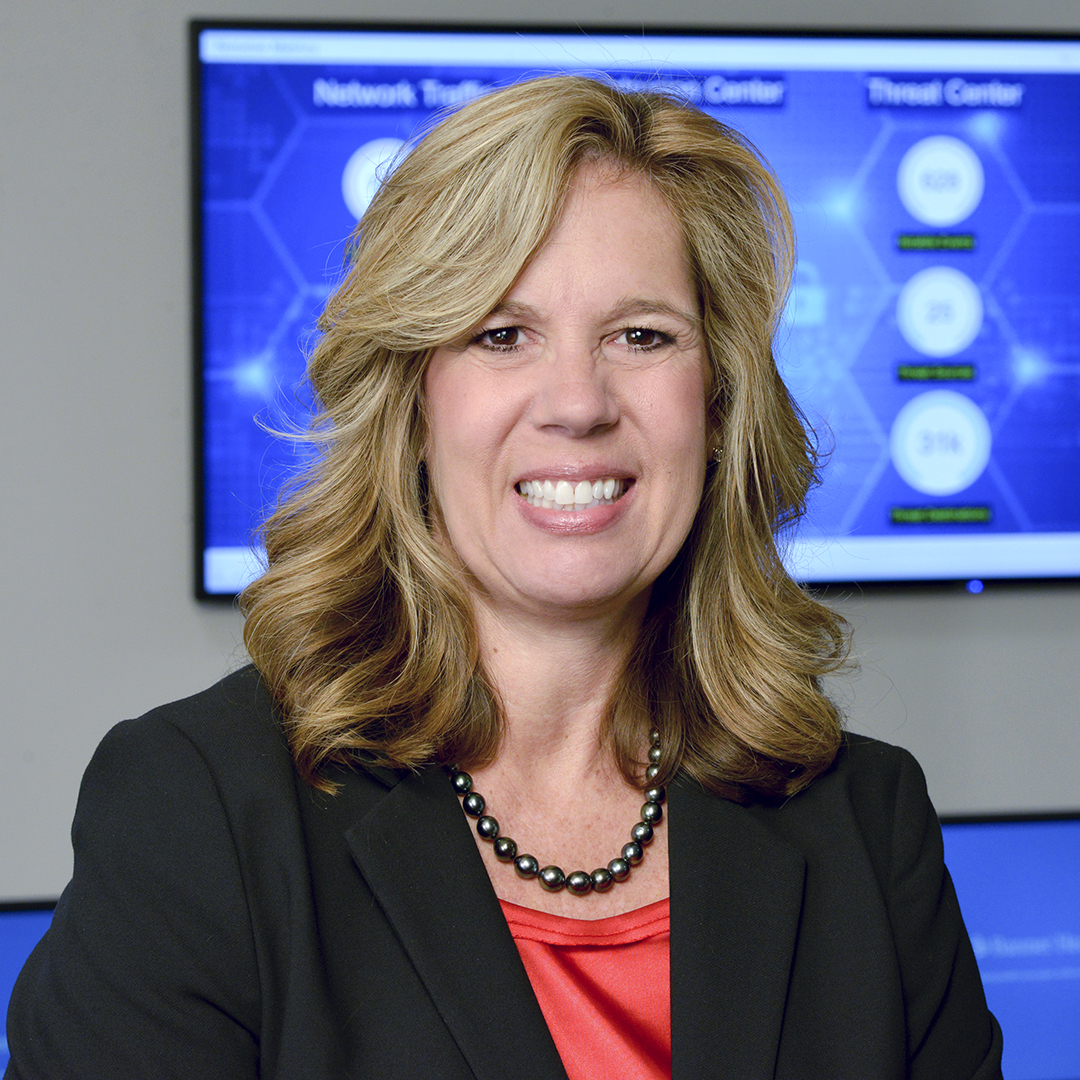Debbie Locklair’s ability to connect individual experience to large business choices is no accident. It mirrors her career trajectory. Before moving into administrator roles, she started her career at McLeod Health, a South Carolina nonprofit hospital system, as a NICU social worker in 1989, drawn to the work after delivering premature twins. “From the beginning of my career in healthcare I have had the perspective that you must consider the whole person, whether a patient or an employee,” she says. “The best way to make big decisions means thinking through how those decisions impact the individual’s delivery of care and receiving of care.” Eventually, she moved on to become senior vice president and chief human resources officer of McLeod Health—a position she accepted with utmost dedication.

As both a business partner and a business builder in her role, Locklair takes a seat at the table in executive operations committee meetings, helping guide responses to overarching health system concerns. As the organization works to answer challenging questions about the maintenance of strong financial stability, growth in new markets and services, and implementation of best operational practices, Locklair recognizes that each decision impacts McLeod’s ability to fulfill its mission of clinical excellence, and more so, individual patient care. Since starting in her new role in December 2018, Locklair has learned to address problems with a variety of tools. Most importantly, she develops authentic relationships, builds collaboration through common goals, and aligns outcomes for shared success.
Locklair feels understanding both personal and organizational vision is critical to a senior role. She also knows that, in such a role, positive change must be led through a cascade of formal and informal influences and key messaging that creates buy-in among stakeholders. She recalls a twenty-three-bed emergency department she helped design in a McLeod’s hospital in Dillon, South Carolina, where she spent ten years as the hospital’s administrator. “Hospitals in rural areas don’t get to replace large, expensive technology very often,” she says. As such, the design and patient flow needed to take longevity into account. The emergency department that was built guarantees care for future generations. “I love this organization,” she says of McLeod. “It was founded by a local, dedicated physician and continues to have a local volunteer governing board. We are sustaining and positioning McLeod Health to continue to provide excellence in healthcare for generations to come.”
“From the beginning of my career in healthcare, I have had the perspective that you must consider the whole person, whether a patient or an employee.”
Locklair is, among other things, responsible for building strategies and tactics around employee benefits and relations, regulatory requirements, and, when they happen, acquisitions for McLeod. Considering the network’s eighty-five hundred employees, Locklair says, “You have to use data to understand changes that are occurring and look ahead to mitigate threats to the organization, like labor shortages and pending retirement of key talent.” Currently, she focuses on solutions for concerns many medical providers face: a market that puts McLeod in tight competition for talent, increased baby boomer retirement rates, and a heightened need for skilled bedside nurses and clinicians.
In the face of these challenges, Locklair and her team have launched several initiatives to ensure strong results. McLeod has developed pipeline collaborations—partnerships with local universities, technical schools, adult learning programs, and high schools—to deepen the trained employee candidate pool. New technology also comes into play to increase McLeod’s rate of applicant responses by reaching out to a broader base of candidates to help tell its story. “We receive over 80,000 job applications per year,” says Locklair. “We want to make sure that we can find the best external candidates who meet our standards while also developing our own internal talent.”
Once employees are in the system, Locklair and McLeod Health continue to develop and grow their own staff by supporting them with ongoing education, including online learning through “McLeod University,” targeted education, and scholarships. Additionally, Locklair and McLeod leadership continue to evaluate the life-stage needs and performances of employees, exploring options for flexible scheduling and added job duties to respond to employee preferences. For all employees, Locklair and her team are working to build methods to “bridge gaps” and foster a sense of belonging and friendship as well as a personal connection to McLeod’s larger mission. “We have to tell our story through messaging that everyone can hear or visualize and relate to,” she says.
Like many organizations, McLeod sees the challenge of developing intergenerational employee teams. Locklair considers how to help people be open to new approaches and to value different experiences. In responding to this issue and others, Locklair is implementing new HR technology that will increase agility and access to data. Furthermore, she believes assessing this data and providing directional trends for leaders act as tools to help develop strategies to strengthen personal relationships. Currently, she’s using directional data to tackle first-year turnover rates and establish best practices in keeping a workforce engaged. She recognizes, however, that “data is directional; one solution won’t work for every department, location, or individual.”
Fortunately, proactively developing McLeod’s workforce is no new task. More than one hundred years after Dr. McLeod founded McLeod Health in 1906, the organization continues to experience strong growth, expanding from its original location, in Florence, South Carolina, to a network of seven hospitals across the eastern portion of South Carolina. Locklair explains that intrinsic to growth is dedication to Dr. McLeod’s original vision of medical excellence.
While an organization can have the best plans, protocols, and technical training, Locklair believes, it cannot be exceptional unless staff is also caring. “Patients can feel if they are receiving medical care with compassion,” says Locklair. “Our vision is to be the choice for medical excellence, and that means we must have employees who are compassionate, well-trained team players who are connected and engaged to the vision for excellence.” This compassion focus even extends to staff who might never interact with patients but who still support patient care.
Always keeping individual impact in mind, Locklair is appreciative of the sustained relationships she has built over time. “I enjoy interacting with employees and physicians from every level of work in all our settings. I know many of their families and personal stories because they have shared them. I am touched to have the opportunity to be involved in this work,” she says. “I’m thankful for the opportunity to step out into new worlds and to be able to serve in a wide variety of roles throughout my twenty-seven years at McLeod Health.”
Willis Towers Watson is a leading global advisory, broking and solutions company that helps clients around the world turn risk into a path for growth. We deliver solutions that manage risk, optimize benefits, cultivate talent, and expand the power of capital to protect and strengthen institutions and individuals. www.willistowerswatson.com


